World 1745-1901
Trade and the morality of some trade such as slavery are brought into question during this period. Included here are articles providing information about the world structures and the challenges they experienced in this period. Key individuals are explored such as Thomas Payne, and how their reach was British, European and Global. In other articles the encounters with China that are taking place in the 19th century are discussed.
Sort by:
Date (Newest first) | Title A-Z
Show:
All |
Articles |
Podcasts |
Multipage Articles
-

Cunning Plan… for using the story of Eunice Foote to bring environmental history into the curriculum
ArticleClick to view -

What Have Historians Been Arguing About... schooling and the British Empire
ArticleClick to view -
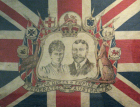
What Have Historians Been Arguing About... the history of Australia
ArticleClick to view -

‘But they just sit there’: using objects as material culture with Year 8
ArticleClick to view -

Cunning Plan 191: diving deep into ‘history from below’ with Year 8
ArticleClick to view -

Historical thinking and art education in Canada’s era of societal reckoning
ArticleClick to view -
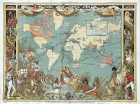
Navigating the ‘imperial history wars’
ArticleClick to view -

Short cuts to deep knowledge
ArticleClick to view -

What Have Historians Been Arguing About... expanding the reach of the American Revolution
ArticleClick to view -
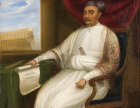
What Have Historians Been Arguing About... the British Empire and the age of revolutions in the global South
ArticleClick to view -

What Have Historians Been Arguing About... the impact of the British Empire on Britain?
ArticleClick to view -

Broadening and deepening narratives of Benin for Year 8
ArticleClick to view -

Decolonise, don’t diversify: enabling a paradigm shift in the KS3 history curriculum
ArticleClick to view -

Transatlantic slavery – shaping the question, lengthening the narrative, broadening the meaning
ArticleClick to view -

What Have Historians Been Arguing About... migration and empire
ArticleClick to view -
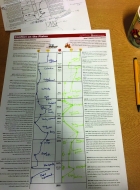
Using historical discourse to find narrative coherence in the GCSE period study
ArticleClick to view -
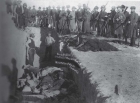
Polychronicon 173: From American Indians to Native Americans
ArticleClick to view -

The Effect of Prior Knowledge on Teaching International History
ArticleClick to view -

Bristol and the Slave Trade
ArticleClick to view -

Polychronicon 160: Interpreting 'The Birth of a Nation'
ArticleClick to view

